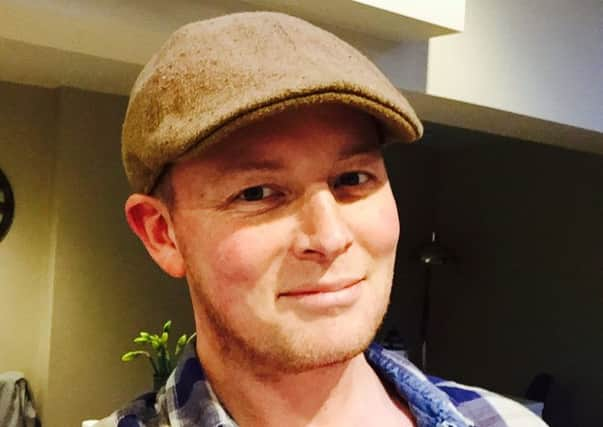Stroke survivors feel '˜abandoned'


Nathan Ridgard had two strokes and a brain haemorrhage aged just 36. Due to his young age at first doctors thought he was suffering from migraine.
After three days in Harrogate District Hospital Nathan had a brain scan which revealed he’d had a stroke and discharged after a week. Nathan’s stroke affected his eyesight, balance, energy levels and left him in severe pain, leaving him unable to work for over three months. He was told that recovery and rehabilitation time could last up to two years.
Advertisement
Hide AdAdvertisement
Hide Ad“After I was discharged after a week I felt nervous that I’d been sent home so soon after what had happened. I felt like I needed someone to hold my hand and guide me but instead I felt like I was passed from pillar to post with no one to turn to for the medical and personal support I actually needed.”
A report published yesterday by the Stoke Association revealed that more than half of stroke survivors in Yorkshire and the Humber feel abandoned when they leave hospital. The charity is now calling for the government to invest in a new stroke strategy.
“I could tell that there was a lack of medical resource that specialised in my condition and no one could dedicate time to helping provide the support I needed,” says Nathan who suffered his stroke in 2012
“There was also a distinct lack of information and advice as to what to do next in my personal matters such as employment, our house and bills, driving, insurance matters. It’s a mind-field and one which you are in no fit state to handle yourself at the time and your loved ones are too busy caring for you. As a young man it felt like someone had taken my life as I knew it. I was left to wonder who is going to help me.
Advertisement
Hide AdAdvertisement
Hide Ad“If the government invested more into stroke care they could potentially save themselves so much money in the long run as more people would get back to work and more people would be able to care for themselves.”
Jon Barrick, chief executive at the Stroke Association, said: “These findings are deeply concerning. Currently, too many stroke survivors feel abandoned when they return home as they are not given the right support to begin their rehabilitation. Major strides have been made in the way stroke is treated in hospital; however the same is not true when stroke survivors return home. No one plans for a stroke, but the Government can, and should, ensure that the right care and support is there when people need it most.”
The charity is launching a major new campaign, A New Era for Stroke, which calls on the Government to commit to a new stroke strategy. The current 10 year National Stroke Strategy for England ends in 2017, and the charity is warning that stroke survivors’ recovery will continue to be put at serious risk unless the Government commits to a new strategy.
“Stroke survivors have told us that they have had to wait weeks – and in some cases months – for the support and therapy they need to rebuild their lives. For too many people, their support comes too late, it stops too soon, or they don’t have access to all types of therapy they need. We successfully campaigned for the first strategy ten years ago which has led to dramatic improvements in the way stroke is treated in hospital. However this has not carried through to the support that people need once they return home. The Government has said they don’t have plans to renew the stroke strategy, yet almost half (48%) of stroke survivors in Yorkshire and the Humber have said a national plan is needed. That’s why we’re urging people to sign our petition calling on the Government to bring in a new era for stroke.”
Advertisement
Hide AdAdvertisement
Hide AdThe National Stroke Strategy for England was introduced to improve standards in treatment and support for people affected by stroke. As part of its campaign, the Stroke Association is launching a public petition, calling on the Government to commit to a new stroke strategy.
Professor Karen Middleton, chief executive of the Chartered Society of Physiotherapy, said: “This survey paints a worrying picture of inadequate care planning and services for stroke survivors. It is neither cost effective nor clinically effective to provide life-saving treatment but not life-enhancing rehabilitation afterwards. Ensuring stroke survivors have speedy and sufficient access to physiotherapy is an essential part of their recovery: enabling people to regain independence and take an active role in their community, family and workplace. We are very pleased to back the Stroke Association’s call for a new stroke strategy so that survivors receive the best possible support from hospital to home.”
To sign the Stroke Association’s petition for a new strategy visit www.stroke.org.uk/newera